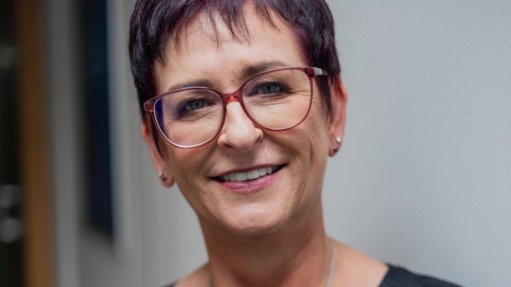Deportation by another name
This week I revisit the issue of migration, which I touched on a few months back in a piece in which I cited Chimamanda Ngozi Adichie’s novel, Americanah, where the point-of-view character retraces her footsteps back to Nigeria, having failed to acclimatise to the American way of life. I called that rejection by American-ness and contrasted it with her high school lover’s rejection by British officialdom, which sees him being bundled on to a Lagos-bound plane on account of being an undocumented immigrant.
Now British officialdom is at it again. The difference this time is that the removal of the targeted individuals is not deportation per se. The scale, too, will be much vaster, compared what we see in Americanah, where officers arrest one person here and another there for failing to prove their legal status in the UK. What’s going to happen, if a plan by the UK and Rwanda comes to fruition, is that would-be refugees entering the UK will be flown to Rwanda – about 6 400 km away – apparently to be settled for good. The destination will be the same for everyone, regardless of country of origin.
The British government is apparently fed up with the scores of economic refugees who wash up on the country’s shores each year, some nearly in the literal sense. Last year, more than 28 000 people seeking a better future entered Britain using boats operated by smugglers or by hiding on trucks, up from 8 500 in 2020. Britain is now home to an estimated 130 000 refugees hailing from, among other countries, Burundi, the Democratic Republic of Congo, Libya and Pakistan.
Nearly all those who make the daring attempt – actually, a daredevil attempt for those who are transported by risky boats – use northern France as a launching point. There used to be other routes too, but these have virtually been closed down since the advent of Covid-19.
The deal between the British and the Rwandans is meant to be in place for the next five years and the British government has reportedly paid $158-million for housing for the newcomers and for integrating them into Rwandan society.
At face value, Rwanda’s is a good gesture. Which other country – in Africa and elsewhere – has been keen to welcome nearly 30 000 refugees (read economic migrants) each year? But I have a problem with Rwanda as the chosen destination for this scheme. My biggest issue is that land is a scarce commodity in the Central African country. According to the Word Bank, Rwanda is Africa’s second most densely populated country after Mauritius, with about 525 inhabitants per square kilometre.
Why did it not occur to the British to approach the likes of Botswana and Namibia, the population densities of which are much lower, at about five people per square kilometre and three people per square kilometre respectively? I raise this question because it was essentially competition for resources, including land, that sparked the pogroms the world witnessed in 1994 in which nearly one-million ethnic Tutsis and moderate Hutus who tried to protect their Tutsi compatriots perished.
It’s not only this lowly journo who is against this plan; my views are in sync with even those of heavy-hitters in the human rights space. Amnesty International has called it “a shocking ill-conceived idea [that] will go further in inflicting suffering while wasting huge amounts of public money”. The UK-based Refugee Council has characterised it as “dangerous, cruel and inhumane”.
There should be a solution for the exodus of Africans to lands where they are unwanted. Some have lost their lives while en route and others at the hands of hostile locals. All it will take is calling out brutal dictators, thus diminishing the incentive to migrate illegally.
Article Enquiry
Email Article
Save Article
Feedback
To advertise email advertising@creamermedia.co.za or click here
Comments
Announcements
What's On
Subscribe to improve your user experience...
Option 1 (equivalent of R125 a month):
Receive a weekly copy of Creamer Media's Engineering News & Mining Weekly magazine
(print copy for those in South Africa and e-magazine for those outside of South Africa)
Receive daily email newsletters
Access to full search results
Access archive of magazine back copies
Access to Projects in Progress
Access to ONE Research Report of your choice in PDF format
Option 2 (equivalent of R375 a month):
All benefits from Option 1
PLUS
Access to Creamer Media's Research Channel Africa for ALL Research Reports, in PDF format, on various industrial and mining sectors
including Electricity; Water; Energy Transition; Hydrogen; Roads, Rail and Ports; Coal; Gold; Platinum; Battery Metals; etc.
Already a subscriber?
Forgotten your password?
Receive weekly copy of Creamer Media's Engineering News & Mining Weekly magazine (print copy for those in South Africa and e-magazine for those outside of South Africa)
➕
Recieve daily email newsletters
➕
Access to full search results
➕
Access archive of magazine back copies
➕
Access to Projects in Progress
➕
Access to ONE Research Report of your choice in PDF format
RESEARCH CHANNEL AFRICA
R4500 (equivalent of R375 a month)
SUBSCRIBEAll benefits from Option 1
➕
Access to Creamer Media's Research Channel Africa for ALL Research Reports on various industrial and mining sectors, in PDF format, including on:
Electricity
➕
Water
➕
Energy Transition
➕
Hydrogen
➕
Roads, Rail and Ports
➕
Coal
➕
Gold
➕
Platinum
➕
Battery Metals
➕
etc.
Receive all benefits from Option 1 or Option 2 delivered to numerous people at your company
➕
Multiple User names and Passwords for simultaneous log-ins
➕
Intranet integration access to all in your organisation

















